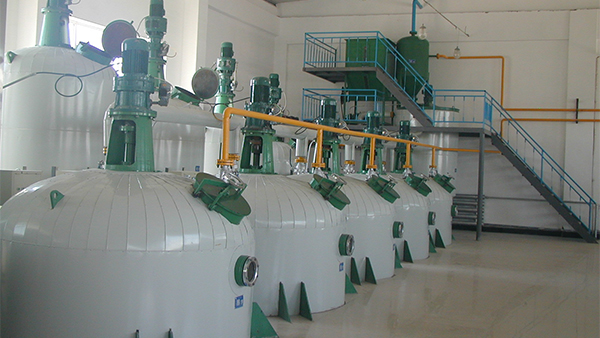As we know that crude vegetable oil needs complete processing to make it edible and pure. Hence we put through series of oil refining techniques which including degumming, neutralization, bleaching and deodorizing.
Main Oil Refining Process
Degumming
In this process, water or acid are added to the oil. After a certain reaction period the gums can be separated either by settling or continuously by means of centrifuges. In this process step a large part of gums are removed. The extracted gums can be processed into lecithin for food, feed or for technical purposes
Neutralization
Any free fatty acids, phospholipids, pigments, and waxes in the extracted oil promote fat oxidation and lead to undesirable colors and odors in the final products. These impurities are removed by treating the oil with caustic soda. The impurities settle to the bottom and are drawn off. The refined oils are lighter in color, less viscous, and more susceptible to oxidation. Soap stock will be generated here.
Bleaching
The major purpose of bleaching is the removal of colored materials in the oil. The heated oil is treated with various bleaching agents such as earth powder, activated carbon, or activated clays. Many impurities, including chlorophyll and carotenoid pigments, are absorbed by this process and removed by filtration. Bleached oil is light in color.
Deodorization
This is the final step in the refining of vegetable oils. Pressurize steam at extremely high temps is used to remove volatile compounds which would cause off odors and tastes in the final product.
Filtration
At several stages in oil refining, filtration is required to be carried out. Oil Filter Press or PLF will remove the solid impurities and sediment particles from the oil making the final refined oil as clean and clear. Filtration is usually done 2 or 3 or even 4 times sometimes.
The final oil produced is known as “refined oil” and is ready to be consumed or for the manufacture of other products. A light solution of citric acid is often added during this step to inactivate any metals such as iron or copper present in the final product.
The refined oil is then sent for filling and packing to be finally sold into the markets!

